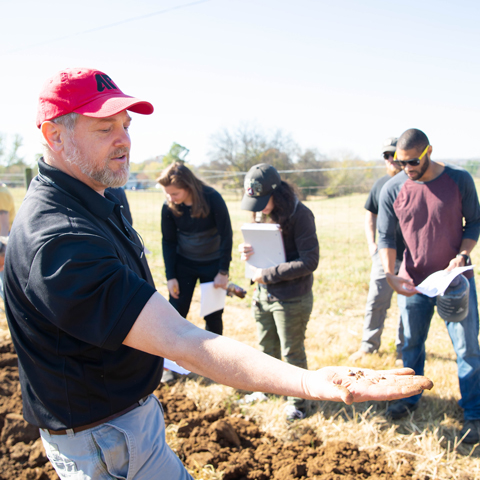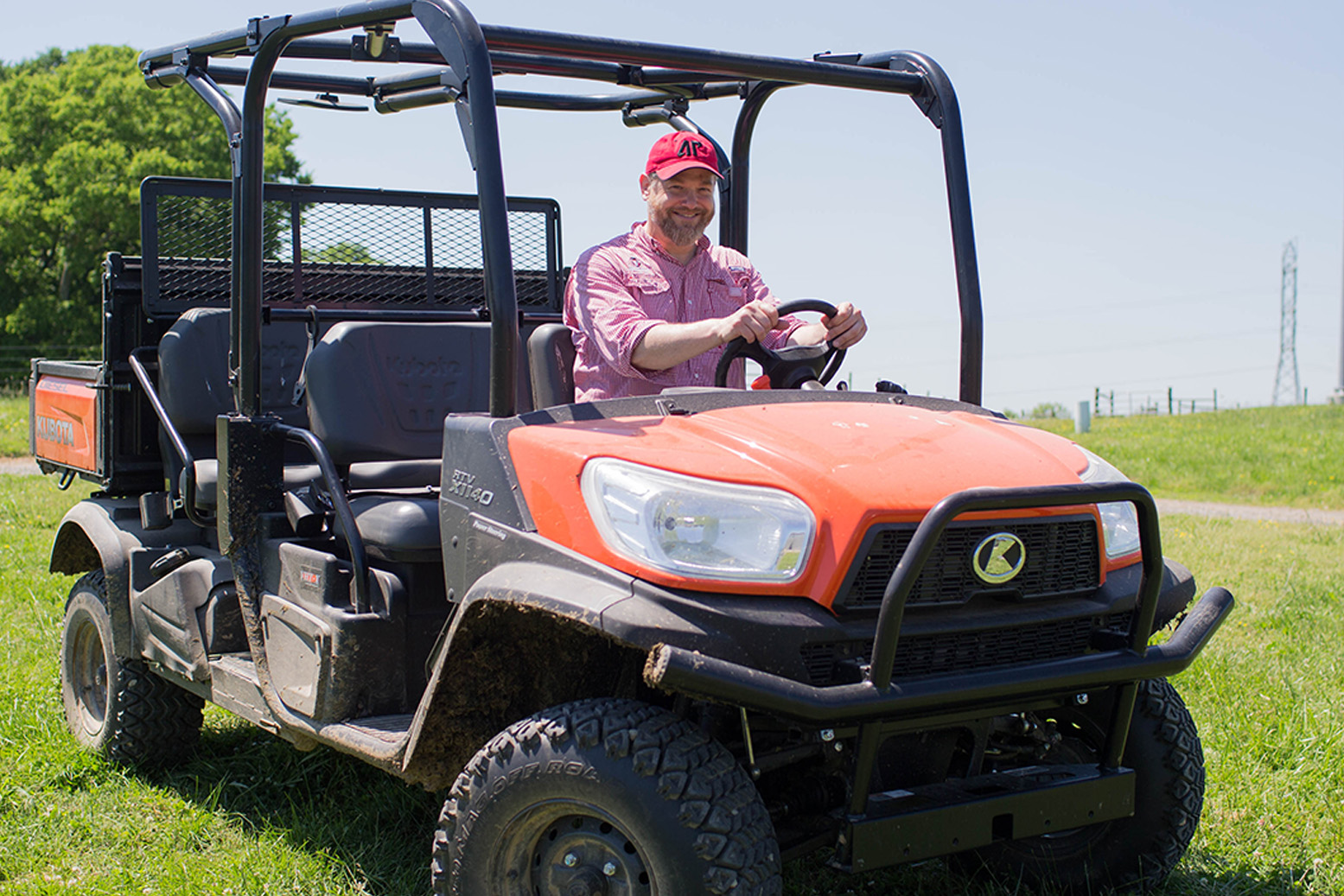Why Study Agri-Communication
Agriculture is one of the most important areas you could choose because it addresses a basic human need—food and other natural resources. Agricultural and natural resources industries are changing rapidly, and the need for clear communication and leadership in them has never been greater. The Agri-Communications concentration will prepare you to take charge of your future in agriculture as you blend theory and knowledge from production agriculture with public relations, writing, and digital media production. In today's economic environment, there is a need for people with communication skills who also understand scientific agriculture.
Students who wish to combine their knowledge in agricultural systems with competence in public relations, sales, journalism, photography, and media in providing the public with relevant agricultural information will benefit from the academic opportunities presented in APSU’s Agri-Communications program.
Agriculture courses are delivered in small class settings with individual attention from faculty with experience and expertise in agriculture. Students have an opportunity for hands-on learning at the 440-acre University Farm and Environmental Education Center to study livestock, crops, forestry, wildlife and natural resources.
APSU faculty who teach courses to Agri-Communications students have a wide variety of research and teaching expertise in Agricultural leadership, education and communications, writing, and Natural Resource Management.
What Will I Learn
- Upon graduation, you will be prepared with the skills and experience to lead as a one-person communication specialist in an agri-business or shine in the boardroom as a valuable member of a large agriculture organization.
- Agri-science students take a wide variety of classes in areas such as animal science, plant science, soil science, biology, chemistry, agricultural economics and farm management. There are also internship and cooperative education course opportunities to work with agricultural organizations, agencies and agri-businesses.
These courses introduce students to the broad array of agricultural-related subject areas which provide a comprehensive understanding that will be useful in future agriculture-related careers such as:
- Public Relations Representative
- Farm Management
- Ag Marketing Specialist
- Ag Sales Representative
- Advertising and Sales
- Agri-Business Manager
- Extension Agent
- Broadcasting
Program Information
Agri-Communication Program Requirements
Agri-Communication Sample 4 Year Plan


